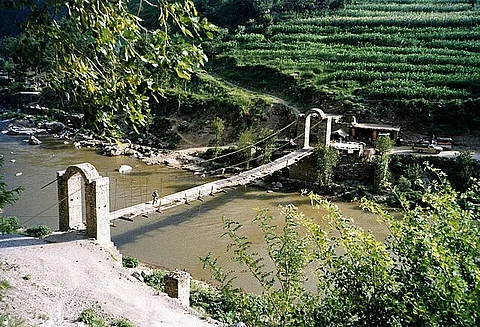

Indian Home Minister Amit Shah announced Saturday that India will permanently terminate the 1960 Indus Waters Treaty (IWT) with Pakistan, vowing to divert river waters to Rajasthan for domestic use. Shah’s declaration, made in an interview with the Times of India, marks a dramatic escalation following April’s suspension of the treaty after a deadly attack in Indian-administered Kashmir killed 26 civilians. India blamed Pakistan-based militants for the assault, though Islamabad denied involvement.
Pakistan’s Foreign Office swiftly condemned Shah’s remarks as a "clear violation of international law" and a "brazen disregard for treaty sanctity." Officials emphasized the IWT, brokered by the World Bank, contains no unilateral exit clause, warning that blocking water flows constitutes an "act of war." Islamabad is exploring legal challenges under international law, arguing India’s stance sets a "reckless precedent" for global diplomacy. The treaty allocates 80% of the Indus River system’s water to Pakistan, critical for agriculture sustaining 60% of its population.
The IWT, signed in 1960, survived three wars but now faces existential crisis. Legal experts highlight its Article XII permits termination only via mutual agreement, a provision India circumvented by citing "abeyance" after the Kashmir attack. While India claims cross-border terrorism justifies suspension under customary international law, Pakistan contends this misapplies the Vienna Convention. The treaty’s dispute-resolution mechanisms, including Neutral Experts and Courts of Arbitration, remain frozen.
India’s plan to divert Chenab and Jhelum river waters via new canals threatens Pakistan’s food security amid existing water stress. Glacial melt, accelerating by 65% since 2000, already jeopardizes long-term basin stability. Pakistan’s Foreign Office warned weaponizing water would "devastate ecosystems and livelihoods," urging third-party mediation. The World Bank, treaty guarantor, faces pressure to intervene.
Shah’s pledge reflects India’s hardened stance under Modi’s government, leveraging upstream control for political pressure. However, experts question feasibility: monsoons make large-scale diversions technically risky, potentially flooding Indian regions. Meanwhile, Pakistan’s reliance on unsustainable groundwater extraction leaves it acutely vulnerable. As nuclear-armed neighbors dig in, the treaty’s collapse risks transforming water into a catalyst for broader conflict.